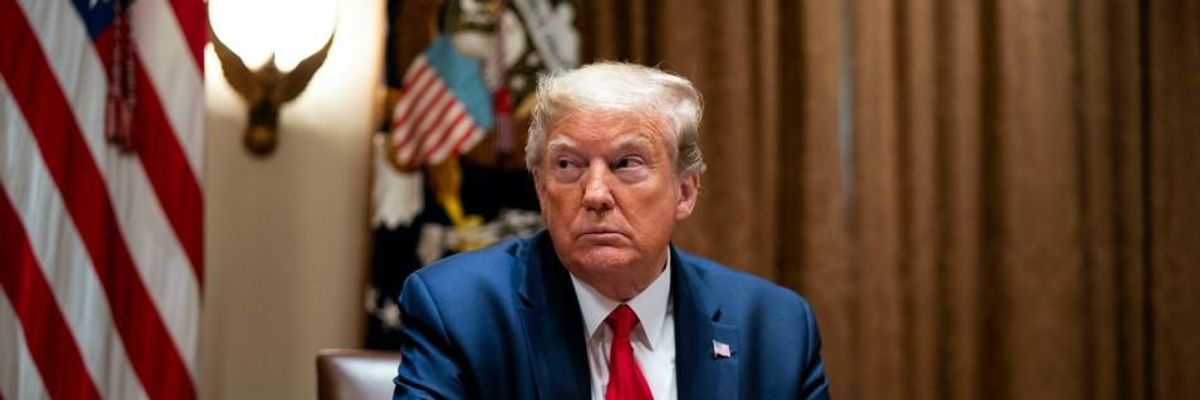The New York Times on Saturday published a detailed account of what led two prosecutors involved with the Manhattan district attorney's investigation into former President Donald Trump's business practices to abruptly resign last month--a "seismic development" that some experts had called "troubling."
The probe was launched under the former district attorney, Cyrus Vance Jr., who did not seek reelection. When prosecutors Carey Dunne and Mark Pomerantz resigned, the newspaper reported that it was because the new DA, Alvin Bragg, had concerns about moving forward with the case.
Following up on their initial reporting, a trio at the Times provided an "account of the investigation's unraveling, drawn from interviews with more than a dozen people knowledgeable about the events," which "pulls back a curtain on one of the most consequential prosecutorial decisions in U.S. history," given that Trump would be the first president to be criminally charged.
Ben Protess, William K. Rashbaum, and Jonah E. Bromwich laid out major developments in the probe and at the office from Vance's final days to the resignations--including a December 9 meeting of the former DA's "brain trust," the public relations "firestorm" Bragg faced over criminal justice reforms and high-profile shootings, and intense discussions between the new district attorney and the two prosecutors in January and February.
As Protess, Rashbaum, and Bromwich reported:
Mr. Bragg was not the only one to question the strength of the case, the interviews show. Late last year, three career prosecutors in the district attorney's office opted to leave the investigation, uncomfortable with the speed at which it was proceeding and with what they maintained were gaps in the evidence. The tension spilled into the new administration, with some career prosecutors raising concerns directly to the new district attorney's team.
Mr. Bragg, whose office is conducting the investigation along with lawyers working for New York's attorney general, Letitia James, had not taken issue with Mr. Dunne and Mr. Pomerantz presenting evidence to the grand jury in his first days as district attorney. But as the weeks passed, he developed concerns about the challenge of showing Mr. Trump's intent--a requirement for proving that he criminally falsified his business records--and about the risks of relying on the former president's onetime fixer, Michael D. Cohen, as a key witness.
The prosecutors quit the day after the new district attorney told them that "he did not want to continue the grand jury presentation" and was not prepared to authorize charges against Trump, according to thereport, which noted that "Mr. Dunne and Mr. Pomerantz also bristled at how Mr. Bragg had handled the investigation at times."
While Pomerantz and Dunne declined to comment, Danielle Filson, a spokesperson for Bragg, said that "this is an active investigation and there is a strong team in place working on it." She added that the probe is being led by Susan Hoffinger, the executive assistant district attorney in charge of the office's Investigation Division.
Responding to the new report, former federal prosecutor Renato Mariotti tweeted that "this is a remarkable article that gives us an inside look into the Manhattan DA's deliberations regarding whether to charge Trump. If you believe prosecutors should indict Trump, it's worth reading. We rarely get a window into prosecution decisions."
According to Mariotti, it is not possible to tell from the Times' reporting "whether the current Manhattan DA is making the right call. We don't know the evidence his team has, and ultimately they could develop evidence that convinces them to file charges."
"I wouldn't be surprised if other prosecutors agonize over charging Trump. Not because they believe he's above the law, but because of issues with the evidence they have," he added. "If you're convinced that other prosecutors are doing nothing, they might be doing what this one did."

